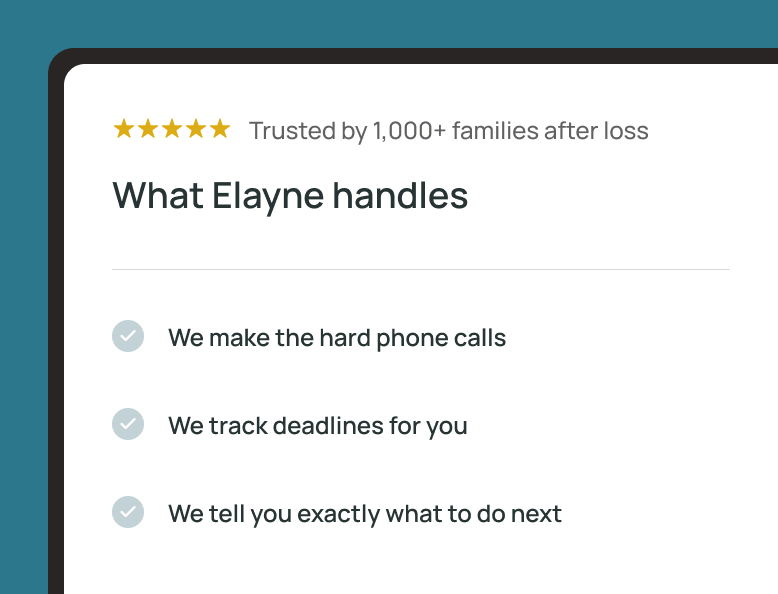When high performers face personal loss, their world - both at work and home - can feel like it's crumbling. As employers, understanding how to support these individuals through their grief is not just compassionate; it's crucial for maintaining a resilient and empathetic workplace culture.
Having navigated the complexities of loss personally and professionally, I've seen firsthand the profound impact that supportive leadership can have during these challenging times.
This guide draws on my experiences to offer strategies for employers looking to support their high-performing employees through loss.
In this article, we'll explore the unique challenges grieving high performers face, leadership's role in their support system, and strategies for management to aid their grieving employees effectively. We'll also touch on the importance of accepting that, sometimes, just showing up is enough.
{{blog-cta-admin}}
Understanding the Unique Challenges of Grieving High Performers
High performers are often seen as the pillars of their teams, known for their resilience, reliability, and the high standards they set for themselves.
However, when faced with personal loss, the qualities that define them can also become sources of added pressure. The expectation to maintain their usual level of performance, coupled with their own internal standards, can make navigating grief particularly challenging.
The Paradox of High Expectations
High performers are accustomed to excelling and often hold themselves to exceptionally high standards. This internal drive, while beneficial in their professional and personal achievements, can exacerbate the stress of coping with loss.
The paradox lies in their self-imposed expectations to manage grief with the same proficiency they apply to their work, which is both unrealistic and unsustainable.
- Self-Pressure: They may push themselves harder to maintain performance levels, ignoring their need for rest and reflection.
- Isolation: A reluctance to show vulnerability can lead to isolation, as they might avoid seeking support to not appear weak.
- Work as a Refuge: Immersing themselves in work to avoid confronting their grief, which can delay the healing process.
- Fear of Failure: Concerns about failing to meet their own or others' expectations can heighten anxiety during an already difficult time.
Understanding these challenges is the first step in providing the right kind of support. Recognizing the signs of a high performer struggling with grief is crucial. They might not always ask for help, often due to fear of appearing less capable or dedicated.
Leadership's role is not just to observe but to actively offer support and adjustments that acknowledge the employee's current state, without making them feel penalized for their grief.
Leadership at Work and Home
For high performers, the lines between their professional and personal lives are often blurred. They carry the weight of leadership in both arenas, making it difficult to find space to grieve without feeling like they're letting down their team or family.
This dual burden can isolate them, as they feel they must cope alone to uphold their responsibilities.
The expectation to lead effectively during times of personal turmoil can be overwhelming. High performers are accustomed to being the ones others turn to for guidance and support, yet when they are the ones in need, the role reversal can be disorienting.
This dynamic can lead to a sense of loneliness and the belief that they must bear their grief in silence to maintain their leadership facade.
- Balancing Acts: Navigating the expectations of being a strong leader at work while managing personal grief can create an unsustainable balance.
- Vulnerability in Leadership: Admitting to struggles can feel antithetical to their identity as leaders, making it challenging to seek support.
- Support Systems: The lack of a support system that recognizes their unique position can exacerbate feelings of isolation.
- Role Modeling: There's an added pressure to model healthy coping mechanisms, even when they themselves are searching for ways to cope.
Acknowledging these pressures and creating an environment where high performers can express vulnerability without fear of judgment is crucial.
Leaders must foster a culture where seeking help is seen as a strength, not a weakness, and where personal well-being is prioritized alongside professional responsibilities.
Strategies for Supportive Management for Grieving High Achievers
Supporting a grieving high performer requires a delicate balance of empathy, flexibility, and communication.
Here are some strategies that can help.
1. Open Lines of Communication
Create an environment where the employee feels comfortable sharing their needs and concerns. Regular check-ins can help, but ensure they're conducted with sensitivity and without pressure.
2. Flexible Work Arrangements
Offer flexible working hours or the option to work from home. This can provide the employee with the space they need to grieve while still contributing to their work.
3. Professional Support Services
Encourage the use of professional grief counseling or employee assistance programs (EAPs). These services can offer specialized support beyond what the workplace can provide.
4. Temporary Workload Adjustments
Consider temporary adjustments to the employee's workload or deadlines. This can help alleviate the pressure to perform at their usual high standard during a time when they're emotionally vulnerable.
5. Fostering a Supportive Team Environment
Encourage a culture of support and understanding within the team. This can help the grieving employee feel supported not just by management, but by their peers as well.
6. Educate and Train Leadership
Providing training for managers and team leaders on how to support grieving employees can be invaluable.
Understanding the basics of grief, recognizing signs of distress, and knowing how to offer support respectfully and effectively are skills that can significantly impact a grieving employee's experience.
7. Acknowledge the Grief
Sometimes simply acknowledging the employee's loss and expressing genuine sympathy can make a significant difference. It shows the employee that their feelings are valid and that they have a support system at work.
For high performers, the notion that "just showing up" is enough can be a difficult one to accept. However, during times of grief, it's an important perspective to foster.
Encouraging them to give themselves grace and acknowledging their efforts, not just their outcomes, can help them navigate their grief without the added pressure of unrealistic expectations.
{{blog-cta-admin}}
Final thoughts
Supporting high performers through loss is a nuanced challenge that requires empathy, flexibility, and a commitment to fostering a supportive workplace culture.
By understanding the unique challenges these individuals face and implementing strategies to support them, employers can help their high-performing employees navigate their grief while maintaining their dignity and professional identity.
For employers looking to better prepare their teams for the eventuality of loss, consider reaching out to Elayne. Our services can help get your employees set up with the support they need during these challenging times.
To learn more, click here to book a demo call with us.
Navigating grief at work is a journey, not a destination. By providing the right support, employers can make this journey a little easier for their high-performing employees, reinforcing a culture of empathy and resilience that benefits the entire organization.












































